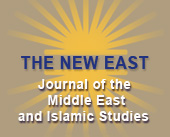On Telegraph and Justice: Petitions from Jaffa
and Gaza to the Ottoman Grand Vizier in Istanbul
during the Late Nineteenth Century
Yuval Ben-Bassat
This article discusses changes in the relationship between the Ottoman central regime and the Empire's subjects in the periphery - in particular Jaffa and Gaza - during the late nineteenth century, prompted by the introduction of new means of communication and the far-reaching transformations in the Ottoman bureaucratic, legal and administrative systems. With the arrival of the telegraph in the mid-1860s and the regularization of postal services, individuals in this area of the Empire had new opportunities to raise their concerns directly with the central government by using the ancient Ottoman institution of petitions to the ruler. The petitioners, coming from varying backgrounds, took advantage of the faster communication with Istanbul and the fact that geography no longer constituted a major barrier to negotiating with the central government to achieve justice, as they saw it. This new reality raised the petitioners' expectations that their appeals would be answered promptly, although often they remained disappointed and frustrated when answers failed to arrive or when the requests were rejected. Concomitantly, despite the tremendous transformations brought about by reforms in the Empire during the nineteenth century, the status of the Sultan as the embodiment of law and justice and as the ultimate redress in these matters remained unchanged. Thus his subjects could approach him directly (through the Grand Vizier), over the heads of the administration and the local authorities. Hence, there was continuity in the operation of the old Ottoman institution of petitions, and ancient modes of action were preserved. Even in this transitional era, the sultan had an interest in maintaining his status as the protector of his subjects who was ultimately responsible for their well-being, since this was his source of legitimacy, public support, and information, and at the same time also strengthened his status vis-?-vis the administration. Finally, this article emphasizes the need to conduct comparative research between the petitions studied and petitions from other regions in the Empire in order to identify parallels and differences. Such an approach could help better integrate the study of Ottoman Palestine during this period within the general discourse on the Ottoman Empire, for example with regard to the notion of justice, while departing from the national discourses which are still prevalent concerning the study of Palestine at the end of the nineteenth century.

